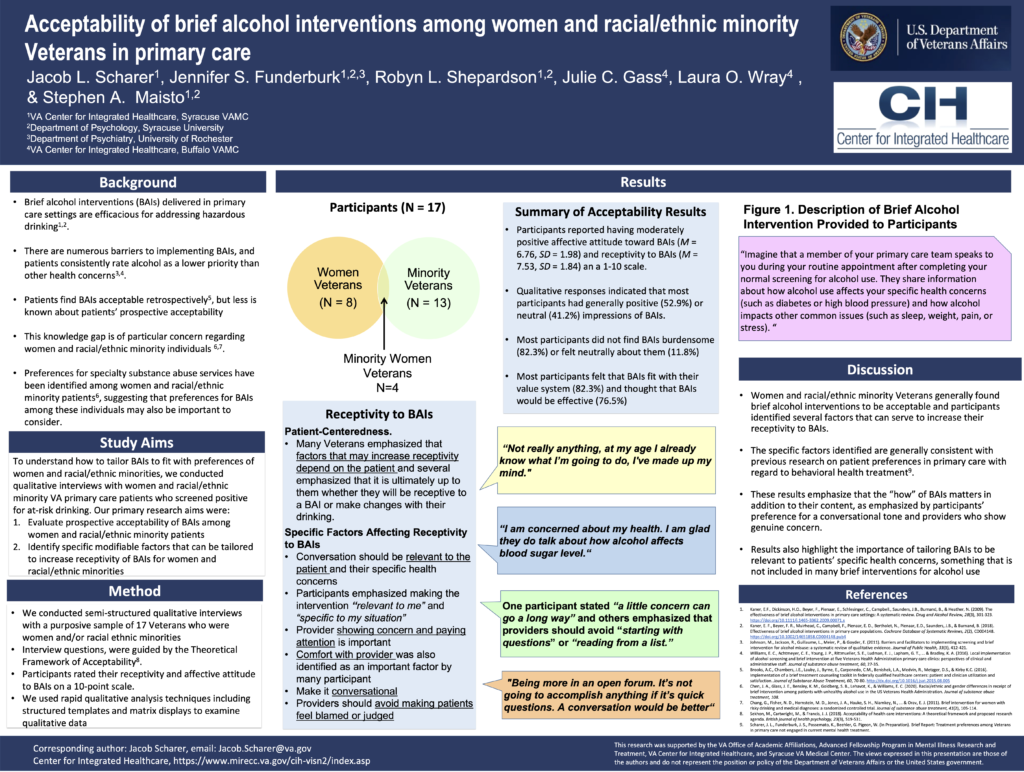Brief alcohol interventions (BAIs) are effective for helping primary care patients reduce at-risk drinking, but there are numerous barriers to implementing them1,2. For example, providers have reported that patients lack interest in or motivation for addressing alcohol use3. In accord with these data, primary care patients consistently rate their drinking as a lower priority compared to other physical and behavioral health concerns4. Although patients exposed to BAIs in research trials typically report finding BAIs to be acceptable retrospectively5, less is known about patients’ prospective acceptability when patients have not yet received alcohol-related care. This knowledge gap is of particular concern regarding women and racial/ethnic minority individuals. Importantly, disparities in dissemination and effectiveness of BAIs have been identified related to BAI receipt and other alcohol-related care among these groups because disparities in dissemination and effectiveness of BAIs and other alcohol-related care have been identified among these groups. Preferences for specialty substance abuse services have also been identified among women and racial/ethnic minority patients6, suggesting that preferences for BAIs among these individuals may also be important to consider. To understand how to tailor BAIs to fit with the preferences of women and racial/ethnic minorities, we are conducting semi-structured qualitative interviews with a purposive sample of 12 women and racial/ethnic minority VA primary care patients who screened positive for at-risk drinking. The goal of these interviews is to identify specific modifiable factors that can be tailored to increase receptivity and acceptability of BAIs for women and racial/ethnic minorities. Interview questions, guided by the Theoretical Framework of Acceptability7, assess the following components: affective attitude, burden, ethicality, intervention coherence, opportunity costs, perceived effectiveness, and self-efficacy. Detailed field notes by interviewers delineating direct quotations and paraphrased material are being used to identify themes within interview responses using rapid qualitative analysis. Recruitment is in process, and data collection and analysis will be completed in Summer 2021 and major identified and their implications for future work will be discussed in this presentation.
Spring Virtual Conference April 17-18th | In-Person Annual Conference in San Antonio, TX Oct 24-26th


Leave a Reply